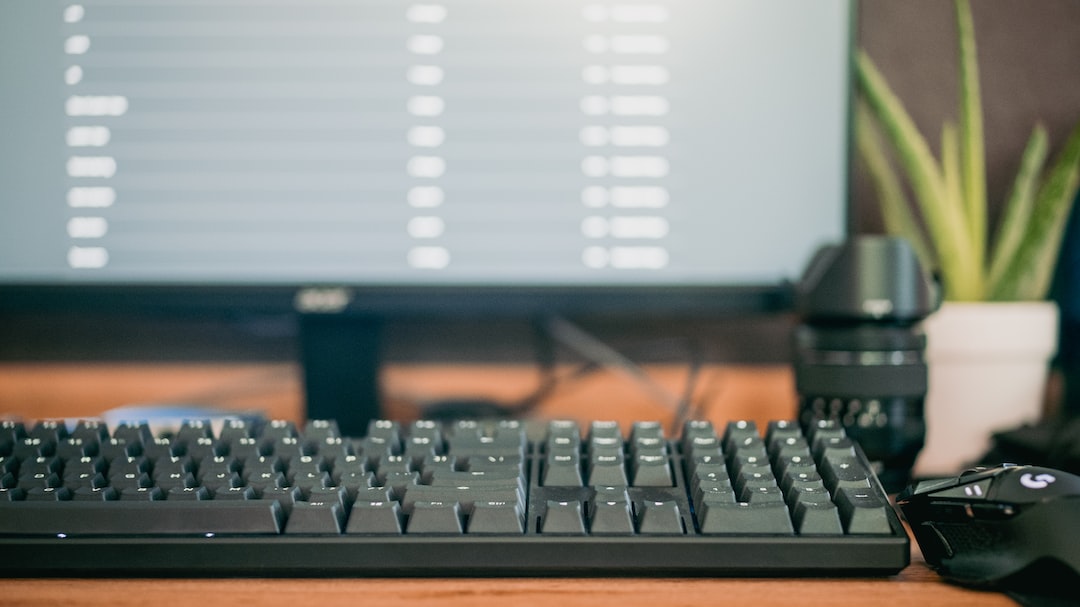7 Tips To Help You Stay Focused During Your Next Work Meeting
7 Tips To Help You Stay Focused During Your Next Work Meeting
1. Introduction
There is no denying that most work meetings are, at best, a necessary evil. They are often long, tedious, and, worst of all, a huge drain on our productivity. It’s no wonder that so many of us dread them!
But work meetings don’t have to be a pain. With a little bit of preparatory work and a positive attitude, they can actually be productive and even enjoyable. Here are 7 tips to help you stay focused during your next work meeting:
1. Make a list of objectives before the meeting starts
2. Find a good location where you won’t be interrupted
3. Limit the meeting to a reasonable length of time
4. Take breaks as needed
5. Keep an open mind
6. Be an active listener
7. Follow up after the meeting
https://unsplash.com/@zdelo
2. Understand why you’re attending the meeting
Understanding why you are attending the meeting is an important factor in determining if the meeting is worthwhile. Even if the meeting is mandatory, look at what is on the agenda and decide if the meeting is something that you can’t orchestrate on your own time.
If you don’t see the value in attending, try to come up with your own questions or objectives that can help you take away something more from the meeting than just attending it. Make sure that your objectives are relevant to the meeting goals, and that they can help drive the meeting in a positive direction.
It’s also important to look at what you can learn and contribute during the course of the meeting. Examining the different viewpoints and experiences other people bring to the table can help you better understand certain topics and help you think more critically about your own work.
https://unsplash.com/@homajob
3. Bring any relevant materials with you
As many are aware, the most common mistake during a work meeting is to forget to bring pertinent materials with you. It's best to plan ahead and have your materials ready before the meeting starts. Some materials you might bring would be research notes, notes from a previous meeting, laptop, specific samples, or documents. This will help you, and in turn, help the meeting progress more efficiently.
You can also prepare visual aids or PowerPoint slides to help your colleagues understand your point of view. Presentation slides can help bring back focus and steady the flow of the meeting. It is also a great way to keep the interest and attention of everyone in the room.
This way, you will be prepared to hold a productive and interesting conversation during the work meeting, with the materials and notes you have.
https://unsplash.com/@jasongoodman_youxventures
4. Know your role in the meeting
Having a good understanding of your role in the meeting is important. A meeting can be derailed quickly if the attendees are unsure of their roles or tasks. Even if you are a facilitator or in the observer role, you should know the basics. Clarify any and all roles and tasks before the meeting so you can focus your attention on more important aspects.
Additionally, have a clear agenda. Make sure everyone in attendance is familiar with the agenda before the meeting starts. Know the timeline and designate someone to keep track of time. As the meeting progresses, it is sometimes helpful to update the attendees of the timeline changes. This ensures that everyone is on the same page.
Finally, pay close attention to the conversations in the meeting. Focus on the tasks being discussed and don't allow yourself to get distracted. If you are feeling unfocused or overwhelmed, take notes and let your colleagues know your thoughts after the meeting.
https://unsplash.com/@bchild311
5. Take notes
As you are participating in an important work meeting, it is vital to be taking notes. Taking notes during the meeting helps you comprehend the information and stay focused on the subject or goal of the meeting. Here are the top five tips for taking notes during a meeting:
1. Before the Meeting: Make sure to take a few minutes prior to the meeting to prepare your notes. Think ahead about the topics that will be discussed and create an outline of the points that need to be addressed to keep yourself organized.
2. Use a Note-Taking App: Using an app like Evernote, OneNote or Google Keep can make it easier to take notes as you can easily share and organize all your notes in one place.
3. Listen and Condense: Resist the urge to write everything down. Focus on listening and condensing your notes to capture the important points.
4. Ask Questions: If you need clarification, make sure to ask questions during the meeting to ensure understanding of the topics.
5. Review and Summarize: At the end of the meeting, take a few minutes to review and summarize the key points that were discussed. This helps to ensure accuracy of the notes you have taken.
https://unsplash.com/@austindistel
6. Speak up when you have something to contribute
During a work meeting, it is important to speak up if you have something to contribute. Speaking up in the meeting room is an important part of participating in the discussion. By speaking up, you can ensure that all opinions are heard and are given the opportunity to shape the outcome of the meeting.
Here are a few tips to remember when speaking up in a meeting:
1. Know When to Talk: It is not always necessary to speak in a meeting. Listen carefully to the other participants and figure out when are the best times to comment.
2. Keep It Relevant: Make sure to keep your comments relevant to the topic of discussion. Straying away from the topic can cause confusion and disrupt the flow of the conversation.
3. Be Clear and Concise: When you do speak, make sure you are as clear and concise as possible. Try not to ramble and stick to the point.
4. Ask Questions: If you are not clear about something, don’t hesitate to ask questions. Asking the right questions can help move the conversation forward.
5. Offer Solutions: Offer solutions as an alternative to the problems discussed. This will demonstrate your knowledge in the topic and show that you are actively participating in the discussion.
https://unsplash.com/@cowomen
7. Follow up after the meeting
Once the meeting is over, it is important to follow up with the participants. Follow up to ensure that everyone is clear on what needs to be done and when.
The follow-up after the meeting should include:
1. Sending out an email summarizing the meeting: Send an email to all participants that summarises the topics discussed and assign any action items.
2.Creating a shared to-do list: Once the meeting has finished, assign a task list to the participants. This will make it easier to track who is responsible for what and allow you to keep an eye on progress.
3.Setting a timeline for the meeting actions: Make sure to set a timeline for the actions that were discussed in the meeting. This will ensure that everyone knows when they need to deliver their tasks.
4.Creating a meeting report: Create a meeting report that includes a summary of the meeting, agendas, action items discussed and timeline for completion.
Following up after a meeting is essential in ensuring that everyone is on the same page and that tasks are completed on time. This will help to ensure meetings are productive and that everyone remains focused on the goals of the meeting.
For any question, please contact us in OpenTimeClock.com. https://www.opentimeclock.com.
Created with the Personal Edition of HelpNDoc: Maximize Your PDF Protection with These Simple Steps





